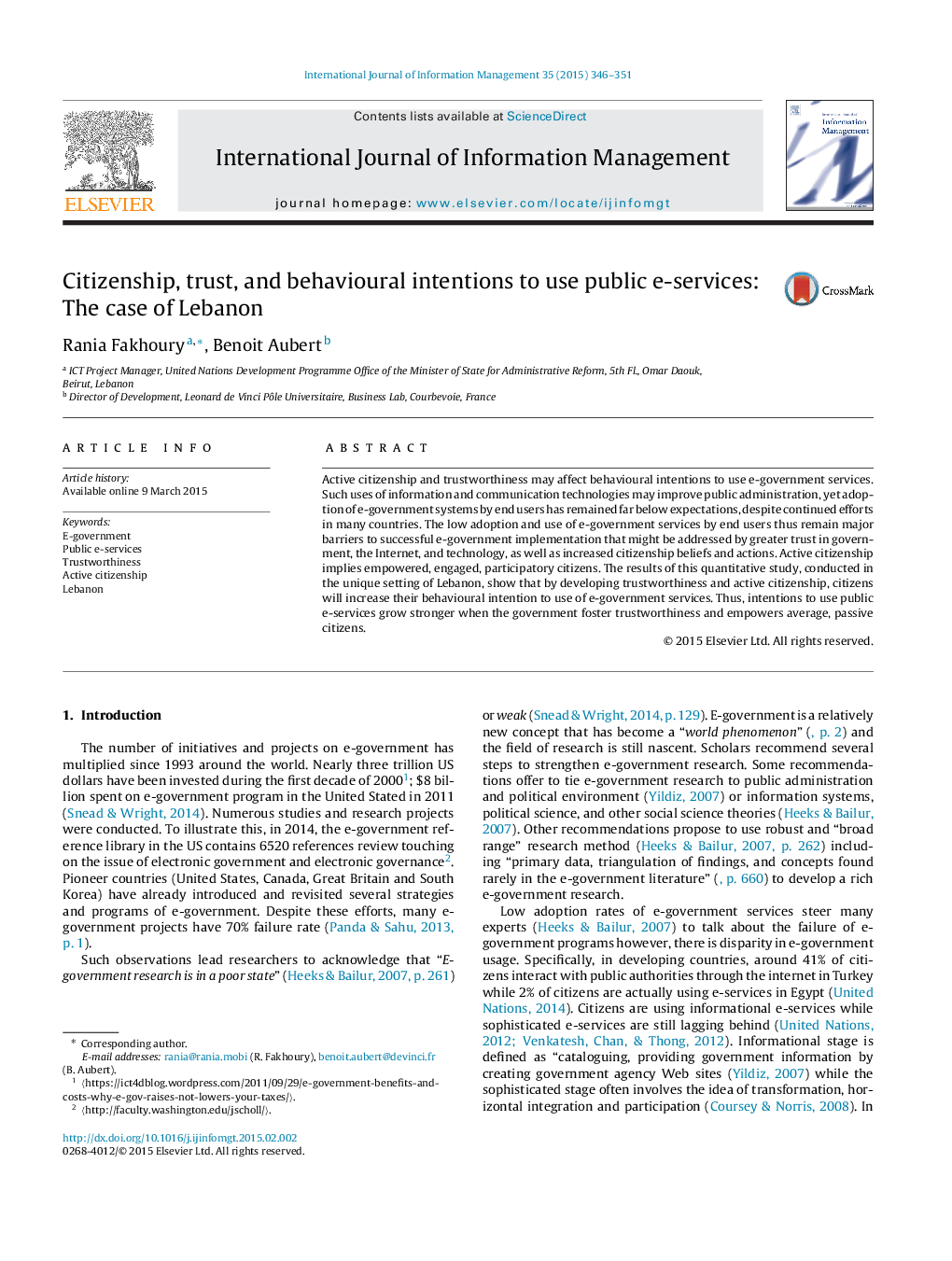| Article ID | Journal | Published Year | Pages | File Type |
|---|---|---|---|---|
| 1025586 | International Journal of Information Management | 2015 | 6 Pages |
•An empirical study conducted to identify determinants of user acceptance for e-government services in Lebanon.•The model examines the relationship of two independent variables, active citizenship and trustworthiness, with a dependent variable, behavioural intentions to use e-government services.•The results demonstrates that non-technical factors trustworthiness and active citizenship impact positively on behavioural intention to use e-government services.
Active citizenship and trustworthiness may affect behavioural intentions to use e-government services. Such uses of information and communication technologies may improve public administration, yet adoption of e-government systems by end users has remained far below expectations, despite continued efforts in many countries. The low adoption and use of e-government services by end users thus remain major barriers to successful e-government implementation that might be addressed by greater trust in government, the Internet, and technology, as well as increased citizenship beliefs and actions. Active citizenship implies empowered, engaged, participatory citizens. The results of this quantitative study, conducted in the unique setting of Lebanon, show that by developing trustworthiness and active citizenship, citizens will increase their behavioural intention to use of e-government services. Thus, intentions to use public e-services grow stronger when the government foster trustworthiness and empowers average, passive citizens.
